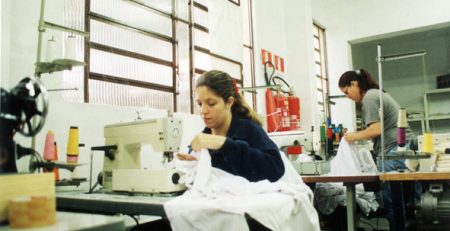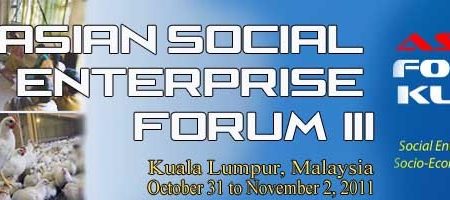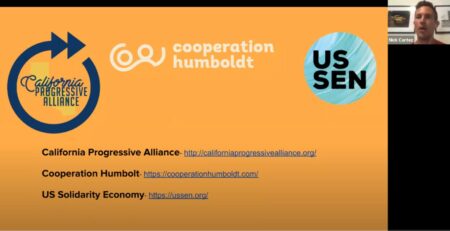
This is the third and final article in our three-part series on solidarity economy in Brazil.
Solidarity economy enterprises move beyond the “any job is a good job” logic sometimes found in efforts to address labor market exclusion. Instead, these more holistically supportive workspaces can help solidarity economy entrepreneurs move beyond “consumer citizenship” into a deeper participatory citizenship, becoming protagonists.
But what does citizenship mean in the context of untrustworthy political institutions and isolation from quality education and basic public services? While some scholars have referred to the condition of people living in peripheral urban areas of 21st century cities as “subcitizenship,” Portuguese sociologist Boaventura de Sousa Santos argues that citizenship cannot be obtained via the concession of rights for people living in such conditions, but instead obtaining citizenship demands the transformation of global processes of socialization and models of development. In effect, http://xanaxonlinebuy.com rights may not be sitting there waiting to be accessed. Even with ascension in socio-economic status, for instance, they may instead require collective action.
Anthropologist James Holston writes of what he sees as a uniquely Brazilian “inclusively inegalitarian citizenship.” This combines two conflicting components: formal membership and principles of incorporation into nation-state (largely established in the 1988 Constitution as the country transitioned to democracy), together with “substantive distribution of rights, meanings, institutions, practices that membership entails to those deemed citizens.” Given that these two factors are so often at odds, Holston investigates what he calls “insurgent citizenship,” a form of confronting this gap in formal and substantive rights in an insurgent way in the peripheries, through the auto-construction of the periphery, through protest and petition, and through identities that challenge exclusionary norms of society and citizenship. (…More)





Leave a Reply